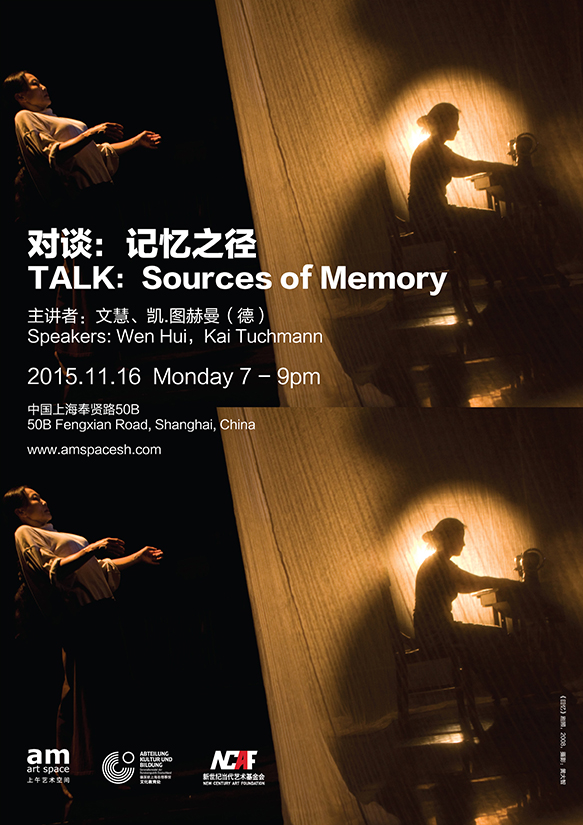This conversation between the famous Chinese choreographer and dancer Wen Hui and the German Documentary Theatre maker Kai Tuchmann will be about their artistic approach, which uses theatre as a space for remembering and creating alternative historiographies. While Wen Hui uses her own body as an archive of remembrance, Tuchmann focuses on mostly textual documents as an archive for setting up alternative perspectives on history.
By discussing their approaches towards different sources of memory and by commenting their previous works, they will give a vivid insight in their artistic practices.
In 2014 Wen Hui and Kai Tuchmann started their joint project, called “Red”. This piece will premiere this year 12.26 at Shanghai`s Power Station of Art.
----------
Wen Hui
Wen Hui is a choreographer, dancer and artist who is focussing on documentary films and installations. In 2009 the French Magazine “Telescope” called her “a pioneer of contemporary dance in China, a miracle”. Graduated 1989 from Beijing Dance Academy with a major in choreography, Wen Hui went to the United States in 1994 for a further study of modern dance. From 1997 to 1998, she was awarded a grant from the Asian Cultural Council and she travelled to New York to research and study dance and play.
In 1994, she co-founded the leading contemporary Chinese Dance Company “Living Dance studio” with Wu Wengang in Beijing. Since 2008, Wen Hui started a series of research on using the human`s body to document the society.
In 2014 her piece “Report on Body” received the ZKB award from Zurcher Theater Spektakel. In 2015 she participated in the 56th Venice Biennale.
Kai Tuchmann
Kai Tuchmann studied Directing at the Drama School “Ernst Busch” in Berlin. Since 2003 he directed at several German Theatres, e.g. Maxim Gorki Theater Berlin, Deutsches Nationaltheater Weimar, Mainfranken Theater Würzburg, Junges Theater Göttingen.
During Fellowships and Residencies in India, China and USA Kai Tuchmann started to develop his own Documentary Theatre approach. He works mainly on the idea of using theatre as a space for (re-)writing history in order to create archives for the future.
His latest production “The Refuse”, collaboration with Grass Stage, was an exploration of the history of Shanghainese penghuqu.

